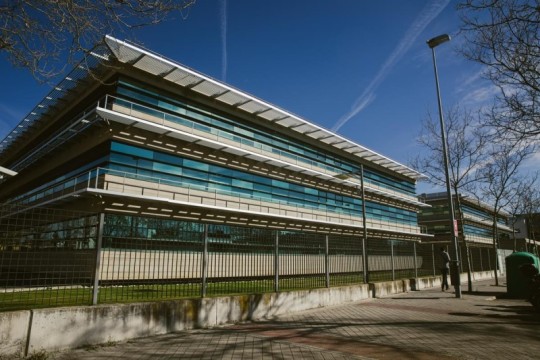#Charges Brought Against Fake Bank’s Associate in Italy
Explore tagged Tumblr posts
Text
Bandenia: Charges Brought Against Fake Bank’s Associate in Italy
Italian prosecutors charged five individuals with providing illegal financial services, including a London-based financial consultant whom OCCRP last week tied to the sham Spanish banking outfit Bandenia, which allegedly laundered money for criminal clients.

Massimiliano Arena and four others were charged in Sicily with being part of a transnational criminal group offering illegal financial services, a document seen by IrpiMedia confirms.
Italy’s La Stampa Libera reports that Guardia di Finanza in the northern Italian city of Messina had found two associates of Arena selling investments through a group of companies he ran that were not authorized to offer financial services in Italy.
Arena previously co-directed BBP Bandenia PLC, the main holding firm of the Bandenia banking group that was broken up in Spain in 2017 as part of a money laundering probe.
OCCRP and partners uncovered recently how people linked to the group have thrived since that Spanish clampdown, setting up at least 450 shell companies and widening their sphere of influence in a number of jurisdictions.
This has been achieved despite the fact that BBP Bandenia CEO Fabio Pastore is wanted by British authorities, and former CEO José Miguel Artiles Ceballos has been sentenced to four years in prison in Spain for money laundering. Ceballos denied all wrongdoing, and said he is appealing his sentence.
Fabrizio Pistorino, who was charged alongside Arena in the Italian investigation that concluded on April 5, is also linked to the Bandenia brand, having directed the U.K.-registered company Bandenia Ltd. with Artiles Ceballos, Pastore, Arena and others.
Arena previously told OCCRP that, while he had been a director of BBP Bandenia, he held “no executive and/or managerial position” and “never had access to any of the company’s information or documentation.”
Into the financial group that was targeted, the prosecutor Veronica De Toni implicated a company named Wealth Bank. IrpiMedia reported last week that Wealth Bank, like certain Bandenia-branded outfits, has boasted a banking license from the non-existent banking authority of Mwali, in Africa’s Comoros archipelago.
The Messina case claims Arena, Pistorino and the others are behind a corporate structure with holdings in the U.K., the Czech Republic, Portugal and the Comoros, according to Italian authorities.
La Stampa Libera reported that the group attracted customers with opportunities to invest abroad, offering healthy returns, via the Jabardo international network.
However, the foreign companies involved were operating “off the books,” the firms taking the investors’ sums were not complying with local laws in their own jurisdictions, and the suspects were not permitted to promote such investments, Italian authorities say.
The probe had begun when a man from the northern town of Barcellona Pozzo di Gotto noticed, after his brother died, that the brother had been sending large sums of money abroad.
The investigation was carried out using phone intercepts and other techniques, La Stampa Libera reported. From Arena, a judge requested the seizure of 750,000 euros (US$827,000), with Pistorino told to hand over 700,000 euros ($771,000). But according to Italy’s Gazzetta del Sud, the money demanded could not be traced as the men are not in Italy.
Giancarlo Liberati, the lawyer representing Arena in the proceeding, told Italian media there was nothing illicit at play.
Separately, authorities in Spain announced in recent days that an investigation into alleged money laundering and due diligence failures by ING, Ibercaja, and CaixaBank in relation to Bandenia had been closed. A judge said he did not find wrongdoing by the three banks, which had been accused of failing to stop illicit funds from Bandenia clients passing through their books.
On Bandenia, the judge said there were no further indications of wrongdoing in the case involving the Spanish banks, but noted that the main case against Bandenia is ongoing.
That case accuses key companies in the Bandenia structure, as well as Artiles Ceballos and a number of his associates, of moving money for 253 clients, most of them criminals.
In an indictment for the case, a Spanish investigating judge called the Bandenia operation a perfect structure for money laundering that was “industrial” in scale. Among other scams, Bandenia is accused of using tools like fake lines of credit to offer criminal clients pretexts to move money internationally.
0 notes